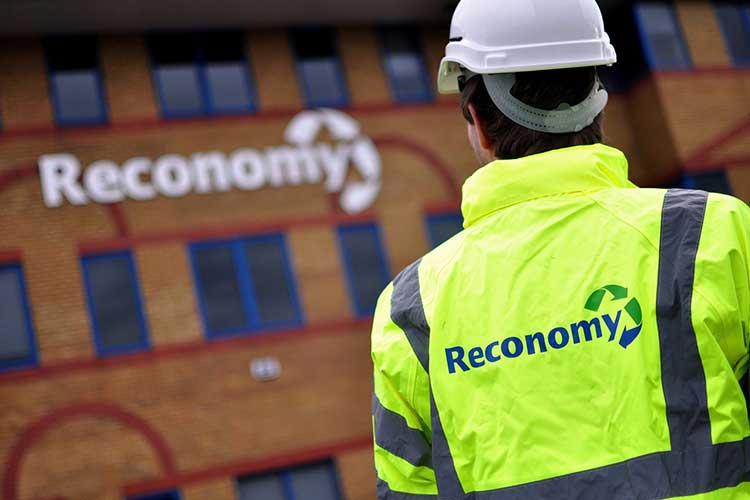It can be easy for start-up businesses in particular to neglect the idea of how much waste their company will produce. But in order to run a successful business, waste management must be considered.
Effectively managing your company’s means having a waste management company that can track the amount and type of waste your company produces, and deal with it with a reliable collection service. This in turn will reduce any unnecessary spending to deal with sudden waste removal requirements.
Together with Reconomy, who have a range of 8 Yard Skip Hire services to suit any need, we take a look at which businesses and industries contribute the most towards the UK’s waste total.
How much waste do different sectors cause?
The commercial and industrial sectors produced 27.7 million tonnes of waste in the UK in 2014. 19.8 million tonnes from this was from England alone with 11.1 million tonnes coming from the commercial sector and 8.7 from the industrial. When looking to the UK entirely, we can see that the commercial sector produced 15.1 million tonnes and the industrial produced 12.6 million tonnes.
In 2012, the construction, demolition and excavation sector produced 108.8 million tonnes of waste, which rose to 120.4 million tonnes in 2014. This is a 10.6% increase for the UK. This sector generated over 60% of the UKs total waste.
Fishing, agriculture, forestry, and mining companies saw a 9.0% increase of waste in the UK in 2014. In 2012, we saw 24.7 million tonnes of waste and then in 2016, 26.9 million tonnes.
In total, we can report that the UK produced 202.8 million tonnes waste in 2014. This is an increase of 4.6% on 2012.
We are now going to look into various sectors and industries within the UK to see what amount of waste they are causing. We are also going to explore food waste, and how much waste in general is costing the industry.
Hospitality
Research from Wrap shows that the hotel industry spends £318 million on food waste each year. This includes procurement costs, utilities, labour, and waste management costs. This comes to around £4,000 per tonne. This sector produces around 289,700 tonnes of waste each year which 79,000 of it is food waste.
Healthcare
Healthcare is leading the way for recycling their waste, with 7% of their yearly waste being recycled. Food waste costs the healthcare sector £230 million each year – £1,900 per tonne.
The healthcare sector produces 121,000 tonnes of food waste per year in the UK, and a total of 170,300 tonnes of waste.
Food and pub industry
Continuing with Wrap’s research, the UK spends £682 million per year on food waste – £3,500 per tonne. This includes procurement, labour, waste management, and utility costs. In relation to restaurants in the UK, we can see that 51% of waste is recycled, 65% of it being packaging.
The food industry produces 873,000 tonnes of waste in the UK each year which 173,000 of it is food waste.
Alongside this, pubs produce 873,000 tonnes of waste annually, with 173,000 of that being food waste. We found out that 63% of this waste is recycled. The average pub can see a cost of £8,000 per year to get rid of food waste from their premises.
Dealing with food waste
If you run a business in any of the mentioned sectors within the UK, follow these steps to calculate the amount of waste your company produces each year:
Firstly, you need to separate your food waste from the equation. Weigh this so you can see what type of food waste you have. Use three different bins to collect this data, waste for food preparation, spoilage and then the leftovers from your customers plates. Use the data you have collected and multiply this figure by the amount it costs per tonne and this will tell you how much it is costing your business each year.
Here’s an example of some general estimates of different food waste types in the discussed industries:
- Food preparation – 45%.
- Spoilage – 21%.
- Customer plates – 34%.
Of course, there are ways to reduce the total food waste a company produces. One problem that restaurants and cafes often shy away from addressing is the size of their menu; the bigger the menu, the more ingredients you buy – and the more that can be wasted. Take a step in the right direction by looking at your customer patterns – what are they ordering? From this, you will be able to remove the dishes that do not add value to your menu.
Consider, perhaps, that the portions of food being served are too big, and that may be causing a significant increase in your food waste. Reducing the size of your meals even slightly is a simple step to take that could help reduce costs for your business.
Remember to shop smart when it comes to ingredients. Don’t get sucked in by your supplier’s special offers—it’s only a good deal if you’ll actually use the produce. If not, it will end up going in the bin – costing your business more money in the long run. Buy long-lasting ingredients that are vital in your kitchen such as spices, and buy fresh food only as you need.
Also, unwanted food does not need to head to the rubbish bins. Consider donating any usable, unwanted food to a homeless shelter. You could even donate leftovers to a local farm to feed their animals if appropriate. Both of these could be beneficial to you as a business as you will be reducing waste whilst helping the environment.
Government plans
The goal of the UK government is to make our economy a zero-waste economy. This means that, while waste will still exist, the resources we use will be used to their fullest extent. This means we will have to be harder on how much we reduce, reuse and recycle and only ever throw things away as a last resort.
In order to reduce the waste total of the country, businesses have been given responsibilities that they must adhere to. This includes keeping their waste to a minimum. They are also obliged to sort their waste out in the appropriate way and then store it correctly for when it leaves your businesses building. When this happens, you must complete a waste transfer note for each load of waste that is removed from your location. Make sure that your chosen waste carrier is registered to dispose waste and if they are not, first and foremost you shouldn’t use them. You then have a duty to report them to Crimestoppers as they will be dispose of your waste illegally and this can be damaging to the environment. By following the above advice, the UK can make a step in the right direction to achieve the goal they have to become a zero-waste economy.
This is supported content
Sources:
http://www.wrap.org.uk/sites/files/wrap/Restaurants.pdf
http://www.wrap.org.uk/sites/files/wrap/Hotel.pdf





